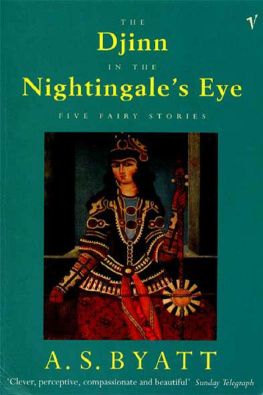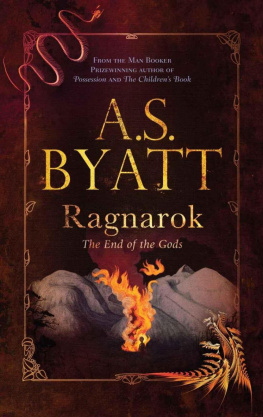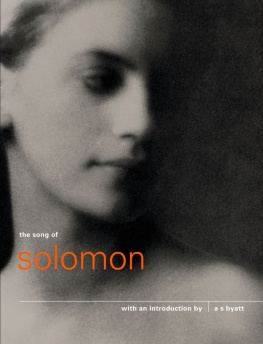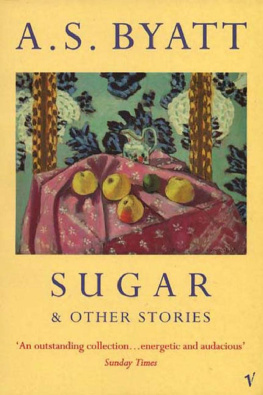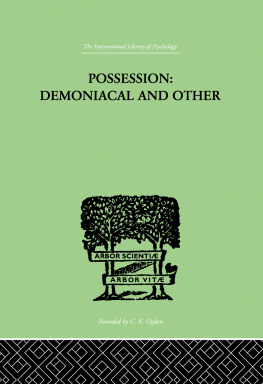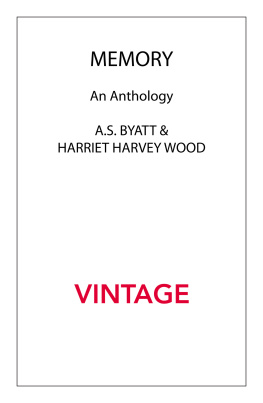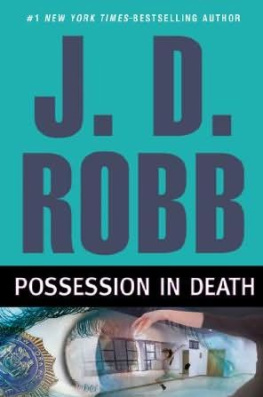Possession A Romance
A.S. Byatt
When a writer calls his work a Romance, it need hardly be observed that he wishes to claim a certain latitude, both as to its fashion and material, which he would not have felt himself entitled to assume, had he professed to be writing a Novel. The latter form of composition is presumed to aim at a very minute fidelity, not merely to the possible, but to the probable and ordinary course of man's experience. The former-while as a work of art, it must rigidly subject itself to laws, and while it sins unpardonably so far as it may swerve aside from the truth of the human heart-has fairly a right to present that truth under circumstances, to a great extent, of the writer's own choosing or creation.... The point of view in which this tale comes under the Romantic definition lies in the attempt to connect a bygone time with the very present that is flitting away from us.
-NATHANIEL HAWTHORNE
Preface to The House of the Seven Gable
And if at whiles the bubble, blown too thin,
Seem nigh on bursting,-if you nearly see
The real world through the false,-what do you see?
Is the old so ruined? You find you're in a flock
O' the youthful, earnest, passionate-genius, beauty,
Rank and wealth also, if you care for these:
And all depose their natural rights, hail you,
(That's me, sir) as their mate and yoke-fellow,
Participate in Sludgehood-nay, grow mine,
I veritably possess them-...
And all this might be, may be, and with good help
Of a little lying shall be: so Sludge lies!
Why, he's at worst your poet who sings how Greeks
That never were, in Troy which never was,
Did this or the other impossible great thing!...
But why do I mount to poets? Take plain prose-
Dealers in common sense, set these at work,
What can they do without their helpful lies?
Each states the law and fact and face o' the thing
Just as he'd have them, finds what he thinks fit,
Is blind to what missuits him, just records
What makes his case out, quite ignores the rest.
It's a History of the World, the Lizard Age,
The Early Indians, the Old Country War,
Jerome Napoleon, whatsoever you please.
All as the author wants it. Such a scribe
You pay and praise for putting life in stones,
Fire into fog, making the past your world.
There's plenty of 'How did you contrive to grasp
The thread which led you through this labyrinth?
How build such solid fabric out of air?
How on so slight foundation found this tale,
Biography, narrative?' or, in other words,
'How many lies did it require to make
The portly truth you here present us with?'
-Robert Browning
from "Mr Sludge, 'the Medium' "
Chapter 1
These things are there. The garden and the tree
The serpent at its root, the fruit of gold
The woman in the shadow of the boughs
The running water and the grassy space.
They are and were there. At the old world's rim,
In the Hesperidean grove, the fruit
Glowed golden on eternal boughs, and there
The dragon Ladon crisped his jewelled crest
Scraped a gold claw and sharped a silver tooth
And dozed and waited through eternity
Until the tricksy hero Herakles
Came to his dispossession and the theft.
- RANDOLPH HENRY ASH
from The Garden of Proserpina, 1861
The book was thick and black and covered with dust. Its boards were bowed and creaking; it had been maltreated in its own time. Its spine was missing, or, rather, protruded from amongst the leaves like a bulky marker. It was bandaged about and about with dirty white tape, tied in a neat bow. The librarian handed it to Roland Mitchell, who was sitting waiting for it in the Reading Room of the London Library. It had been exhumed from Locked Safe no. 5, where it usually stood between Pranks of Priapus and The Grecian Way of Love. It was ten in the morning, one day in September 1986. Roland had the small single table he liked best, behind a square pillar, with the clock over the fireplace nevertheless in full view. To his right was a high sunny window, through which you could see the high green leaves of St James's Square.
The London Library was Roland's favourite place. It was shabby but civilised, alive with history but inhabited also by living poets and thinkers who could be found squatting on the slotted metal floors of the stacks, or arguing pleasantly at the turning of the stair. Here Carlyle had come, here George Eliot had progressed through the bookshelves. Roland saw her black silk skirts, her velvet trains, sweeping compressed between the Fathers of the Church, and heard her firm foot ring on metal among the German poets. Here Randolph Henry Ash had come, cramming his elastic mind and memory with unconsidered trifles from History and Topography, from the felicitous alphabetical conjunctions of Science and Miscellaneous- Dancing, Deaf and Dumb, Death, Dentistry, Devil and Demonology, Distribution, Dogs, Domestic Servants, Dreams. In his day, works on Evolution had been catalogued under Pre-Adamite Man. Roland had only recently discovered that the London Library possessed Ash's own copy of Vico's Principi di una Scienza Nuova. Ash's books were most regrettably scattered across Europe and America. By far the largest single gathering was of course in the Stant Collection at Robert Dale Owen University in New Mexico, where Mortimer Cropper worked on his monumental edition of the Complete Correspondence of Randolph Henry Ash. That was no problem nowadays, books travelled the aether like light and sound. But it was just possible that Ash's own Vico had marginalia missed even by the indefatigable Cropper. And Roland was looking for sources for Ash's Garden of Proserpina. And there was a pleasure to be had from reading the sentences Ash had read, touched with his fingers, scanned with his eyes.
It was immediately clear that the book had been undisturbed for a very long time, perhaps even since it had been laid to rest. The librarian fetched a checked duster, and wiped away the dust, a black, thick, tenacious Victorian dust, a dust composed of smoke and fog particles accumulated before the Clean Air acts. Roland undid the bindings. The book sprang apart, like a box, disgorging leaf after leaf of faded paper, blue, cream, grey, covered with rusty writing, the brown scratches of a steel nib. Roland recognised the handwriting with a shock of excitement. They appeared to be notes on Vico, written on the backs of book-bills and letters. The librarian observed that it didn't look as though they had been touched before. Their edges, beyond the pages, were dyed soot-black, giving the impression of the borders of mourning cards. They coincided precisely with their present positions, edge of page and edge of stain.
Roland asked if it was in order for him to study these jottings. He gave his credentials; he was part-time research assistant to Professor Blackadder, who had been editing Ash's Complete Works since 1951. The librarian tiptoed away to telephone: whilst he was gone, the dead leaves continued a kind of rustling and shifting, enlivened by their release. Ash had put them there. The librarian came back and said yes, it was quite in order, as long as Roland was very careful not to disturb the sequence of the interleaved fragments until they had been listed and described. The librarian would be glad to know of any important discoveries Mr Michell might make.
All this was over by ten-thirty. For the next half-hour Roland worked haphazardly, moving backwards and forwards in the Vico, half looking for Proserpina, half reading Ash's notes, which was not easy, since they were written in various languages, in Ash's annotating hand, which was reduced to a minute near-printing, not immediately identifiable as the same as his more generous poetic or letter-writing hand.


